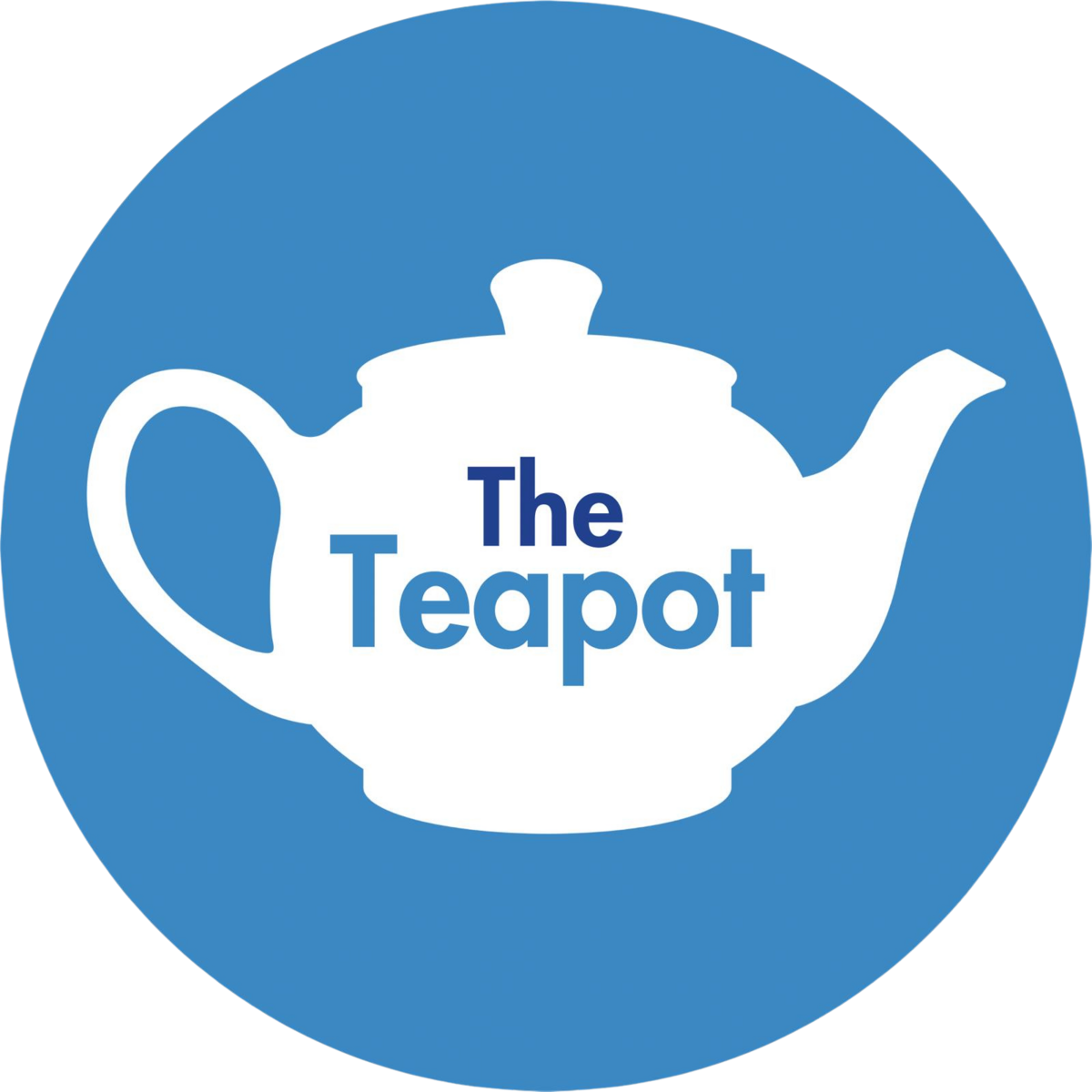Happy Monday. It could be worse. As much as the cyber attack at M&S might’ve hurt your ability to chow down on Colin the Caterpillar and his friends, there’s real cyber trouble in Japan.
Asahi - yes the producer of that beautiful, crisp lager, are the latest to have been struck down by cyber attack. So bad is the situation in Japan that production had been halted and there is believed to only be a matter of hours left of Asahi. “Super Dry” is becoming drier by the minute.
MARKETS
| FTSE 100 | £9,491.25 | +2.06% |
| FTSE 250 | £22,197.62 | +1.51% |
| GBP/EUR | €1.1479 | +0.22% |
| GBP/USD | $1.3477 | +0.52% |
| S&P 500 | $6,715.79 | +0.82% |
Data: Google Finance, 5-day Market Close
Notable UK earnings this week: Zegona Comms (ZEG), Volution Group (FAN), CVS Group (CVSG), Boohoo Group (DEBS).
Notable US earnings this week: Pepsico (PEP), Progressive Group (PGR), Delta Airlines (DAL), Levi Strauss (LEVI).
📈📉
PROJECT WATCH
🏗️ Westminster engage market for £596m housing re-tender. Read more
🔌 Hellenic Cables win Seaway7’s East Anglia offshore wind work. Read more
🌊 Shell get first gas from North Sea field. Read more
BUSINESS & FINANCE
Tesco warns Reeves “Every little hurts” in the budget
As the nation begins plotting Halloween costumes and handing over the good biscuits to trick-or-treaters, Tesco’s CEO is less about sweets and more about tricksy tax treats courtesy of the Chancellor. Ken Murphy – the man steering the good ship Tesco – has warned the government not to lard more costs onto UK retailers in Rachel Reeves' upcoming November Budget. Translation: if it’s between balancing the books and the broccoli aisle, Team Tesco would prefer to keep courgettes under a fiver.
Sound familiar? That’s because we’ve been here before. Last Budget round bells saw retailers swallowing a buffet of “substantial additional operating costs” like higher employer National Insurance contributions (NICs), a tougher minimum wage, and now, the newest unwelcome guest at the fiscal table: ERP. Not an IT system – the Extended Producer Responsibility programme, which handed Tesco a £90m recycling bill. All this as shoppers are still wincing at the cost of a pint of milk and the government claims it’s putting “more money in people’s pockets”.
The Food and Drink Federation – not usually known for stirring the pot – has warned ERP levies alone will cost UK producers a whopping £1.1bn. Naturally, that’ll ultimately hit customers’ wallets faster than you can say “Clubcard price.” Some might call it environmental justice; others might just call it Tuesday. Because, heaven forbid Tesco don’t lose any of their projected £3billion operating profit this year.
Record breaking quarter for the FTSE100
While some were still peeling themselves off the back of beer-soaked pub benches after the final late-summer heatwave, the FTSE 100 was busy strutting its stuff to a record high - it rounded off its best quarterly performance since October 2022. Seems the City got the memo that autumn is for harvest, not hibernation.
Helping hand? A conveniently weaker pound—our old frenemy. While the rest of us wince at the cost of a pint abroad, exporters are clinking glasses. With large-cap firms making bulk of their money overseas, a limp sterling makes their books look rather buff (a cheap pound means your overseas sales typically do well).
Defence stocks led the charge like it was Black Friday at an arms expo. Rolls-Royce and Melrose both climbed more than 2% after UBS decided to sprinkle a little price target fairy dust around. While it is a scary time for the world, it may be a little less so if you’ve been holding their stock in your ISA.
POLITICS

Britain’s BOGOF to junk food, bins the ads
After years of political indigestion, the government’s banning “buy one, get one free” deals on junk food. Shoppers this week will have to pay full price for crisps, cakes and cola, as Westminster takes on the waistline - and that’s just the starter. From January, the UK will roll out the world’s toughest junk-food ad ban, blocking online and pre-9pm TV ads for anything high in fat, salt or sugar.
Ministers hail it as a “crucial step” in tackling childhood obesity. Public health experts say it’s long overdue - obesity is now twice as common in poorer areas, and 60% of online food ads currently push high-fat, salt, sugar (HFSS) products.
Since 2022, supermarkets have been banned from tucking chocolate bars by the tills, with early data showing a 7% drop in HFSS product sales. Many brands are quietly reformulating - pizzas with less sugar, biscuits with more fibre - a “health by stealth” approach designed to slim the nation without killing its appetite. Wales and Scotland plan to follow suit.
NHS: The doctor is ready to see you (online) now
Sir Keir Starmer’s latest cure for NHS queues? A virtual hospital, “NHS Online”, is launching by 2027. Patients will log in, not line up, for consultations, check-ups and even diagnostics, all hosted within the NHS app. Think Netflix, but for nodules.
Ministers promise up to 8.5 million extra appointments, freeing clinics for those who still prefer a waiting room to a Wi-Fi connection. Trials at Moorfields and Southampton show promise, though sceptics warn of “digital exclusion” and the age-old question: where will the doctors come from? Still, Labour’s betting big on broadband bedside care - because if the NHS can’t join the patient in person, they can click to “join meeting”.
Protest and protect
After nearly 500 arrests at weekend rallies, the government’s tightening the protest leash. Police will soon be able to curb repeat demonstrations by weighing their “cumulative impact” - meaning serial sites like Trafalgar Square could face timeouts. Home Secretary Shabana Mahmood insists it’s not a ban but a “balance” between protest rights and neighbours’ peace.
Sponsored
It's not you, it’s your tax tools
Tax teams are stretched thin and spreadsheets aren’t cutting it. This guide helps you figure out what to look for in tax software that saves time, cuts risk, and keeps you ahead of reporting demands.
ACROSS THE POND
Government shutdown rumbles on
In an impressive display of bipartisan deadlock, US senators have once again failed to unlock the elusive 60-vote key needed to kickstart government operations, keeping the shutdown going and leaving us Brits to wonder, “what the hell is even that?”. Well here you go:
A U.S. government shutdown is basically when America can’t decide where the money is going. Congress and the President can’t agree on how to fund the government, so the money tap gets turned off — and suddenly hundreds of thousands of civil servants are told to stay home, while “essential” staff keep working for the princely sum of £0 (pay is backdated later). Meanwhile, national parks close, NASA goes quiet, and politicians take to the airwaves to blame each other for the mess. In British terms, it’s like if the Treasury and Parliament had a row so bad that half the country was put on an unpaid tea break.
Caught in the showdown crossfire is healthcare, a focal point of the stalemate. Democrats are holding out for the continuation of health insurance subsidies for low-income individuals and seek to mitigate the lingering ghost of the Trump era's Medicaid cuts, while Republicans view this play as a gambit to extend an olive branch to undocumented immigrants, an accusation Democrats flat-out deny.
Musk makes it to half a trillion first
Elon Musk continues his cosmic rise in wealth, now worth £500 billion (you read that correctly - half a trillion pounds!), as tallied by Forbes' Real-Time Billionaires tracker. Anyone else think “put it all on red and go for the trillion”?
Albeit temporarily, it was all thanks to Tesla’s strong performance, shares rose nearly 4% recently, padding Musk’s reserves by £7.6 billion. This, after Musk announced he would shift his focus back to Tesla and wander away from his role in President Trump's Department of Government Efficiency (DOGE). It seems Musk's Midas touch is working its magic again, with Tesla nearing its all-time high market cap, arming Musk’s 12% stake to the value of £158 billion.
Tesla’s strong performance is thought to be due to expiring EV grants across the pond with people only having until the end of September to take advantage of them. Let’s see if high sales can hold now they’re gone!
TECH

Brews, blocks and bans
Japan’s famed Asahi Super Dry has turned super silent after a cyber-attack froze its factories and inboxes alike. From beer to bottled tea, shelves are drying up faster than a Tokyo pub at closing time. The brewer’s scrambling to restore systems by hand.
Meanwhile, Apple’s taken a bite out of free-speech debates, pulling ICE-tracking apps that let users spot US immigration agents in real time. Washington called them dangerous; developers called them democracy.
Britcoin bonanza
Britain’s sitting on a digital dragon’s hoard: £5bn in bitcoin, seized from Chinese fraudster Zhimin Qian, whose “get-rich-quick” scheme left 128,000 investors broke and one Hampstead mansion full of encrypted treasure.
The Treasury’s lawyers now want to keep the crypto, while Beijing’s victims demand their money back, with interest. It’s a fiscal fairy tale in the making: one woman’s Ponzi becomes another chancellor’s potential windfall, though courts may keep this loot locked up longer than the Bank of England’s biscuits.
WORLD

Japan’s heavy metal Margaret Thatcher
In Tokyo, Japan is preparing for a political first: Sanae Takaichi, a drum-thrashing conservative with a fondness for Iron Maiden and an admiration for the Iron Lady herself, is set to become the country’s first female prime minister.
While she might rock the stage, she’s less likely to rewrite the social script. Takaichi opposes same-sex marriage and the right for women to keep their maiden names, and she’s vowed to resurrect Abenomics - the greatest hits of high spending, rock-bottom rates, and a prayer.
Her task list is heavier than her playlist: mend a fractured ruling party, tame inflation, and steady relations with Washington. Supporters see a no-nonsense leader ready to turn up Japan’s fading global clout to 11. Either way, the archipelago’s about to find out if a power chord can indeed revive a power slump.
Chile’s great baby bust
Chile is vanishing - demographically, at least. Its fertility rate has plunged 42% in a decade, now hitting just 1.03 births per woman - even lower than Japan’s. To put that in Teapot terms: if a Chilean started drinking 1,000 cups of tea a year and halved consumption annually, they’d be down to just one lonely cuppa a year in ten years. Translation? That lonely, grim demographic brew means that in ten generations Chile’s population would shrink by 99.9%.
The nation’s social transformation - more education, soaring living costs, and an incomplete gender revolution - has left women weighing up childcare costs against personal freedom, and choosing the latter. Hospitals are closing maternity wards, vasectomies are up 900% since 2013, and one in five young Chileans says they’ll never have children. Politicians are now scrambling to offer a flurry of pro-baby bonuses, but with the economy and workforce wheezing, Chile may soon be asking not who will run the country, but who’ll be left to.
Boats and blockades
Israel has deported four Italian activists after intercepting the Global Sumud Flotilla, a 42-boat convoy carrying aid bound for Gaza. More than 470 people were detained after Israeli forces stopped the vessels in international waters, calling it a “provocation”.
Among the passengers was Greta Thunberg. Protesters across Europe - from Barcelona to Bologna - have rallied in response, with Italy even seeing a general strike. The flotilla’s organisers say Israel’s actions were “illegal”; Israel says it was enforcing a lawful blockade.







